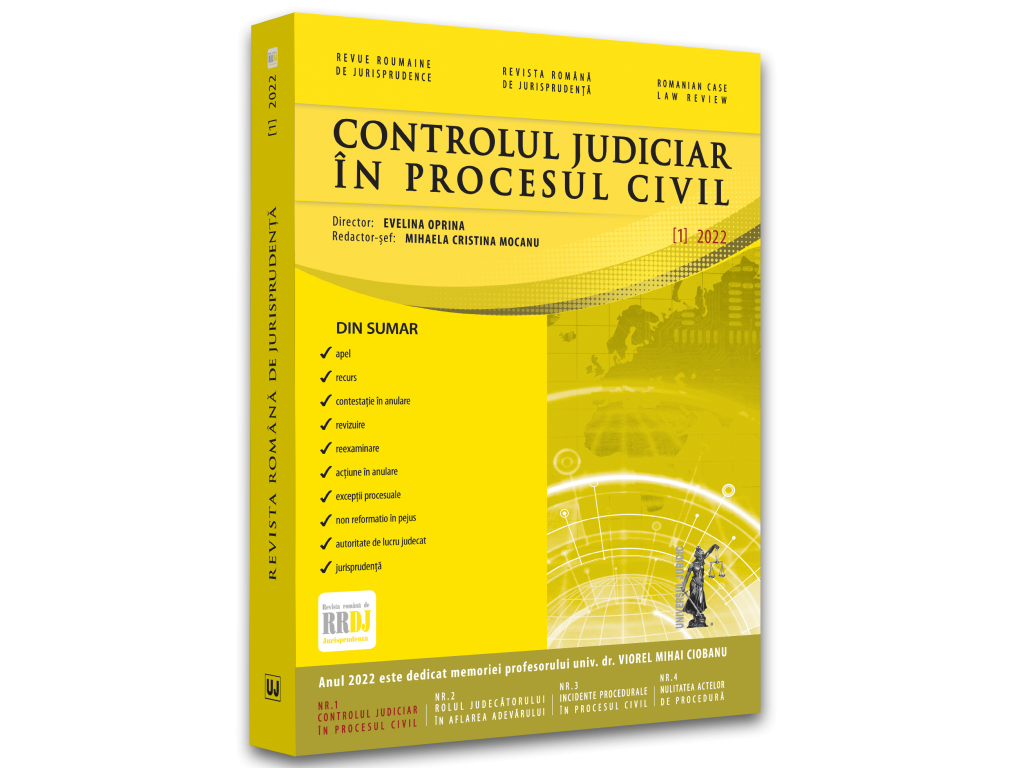Identical inclusion of the considerations of the first court judgment in the decisive and deciding considerations of the appeal court judgment. Settlement of the appeal without going into the merits of the appeal.
JURISPRUDENȚĂ COMENTATĂ ȘI ADNOTATĂ
Abstract
The ground for annulment provided for in Article 488 para. (1), point 6 of the Civil Procedure Code, according to which the quash of certain judgments may be requested when the judgment does not contain the grounds on which it is based (...), is also applicable to the hypothesis in which the judgment of the court of appeal does not contain the considerations supporting the decision delivered on the appeal, but only the reasoning of the first court on the statement of claim, taken verbatim and in its entirety.
In the given hypothesis, the solution to be delivered is to quash the judgment and remand the case for retrial, in relation to Article 498 para. (2) of the Code of Civil Procedure, in the form in force at the date of the commencement of the proceedings, according to which the courts referred to in para. (1) [courts and courts of appeal as appellate courts] shall quash the case and remand it for retrial only once in the course of the proceedings, if the court whose judgment is being appealed has decided the case without going into the merits (...).
The reason given is one of public policy, since the court of appeal, as a participant in the civil trial, cannot review the contested judgment without giving reasons, since the protection provided by the rule goes beyond the particular interests of the parties.
By adopting the identical reasoning of the first court, the Court of Appeal did not examine the appellant's grounds of appeal; the Court of Appeal, should the appeal judgment not be quashed, would be in the position of examining the legality of the arguments of the first court and not of the appeal decision, since the latter did not actually exist.
The reasoning of the judgment must be relevant, complete, well-founded, homogeneous, factual, convincing and accessible, providing a guarantee to the parties that their claims have been carefully considered. A statement of reasons which is excessively brief or inadequate in relation to the complexity of the case or the exact wording of the reasoning of the first instance amounts to a failure to state reasons and, consequently, to a failure to investigate the subject-matter of the investigation.








